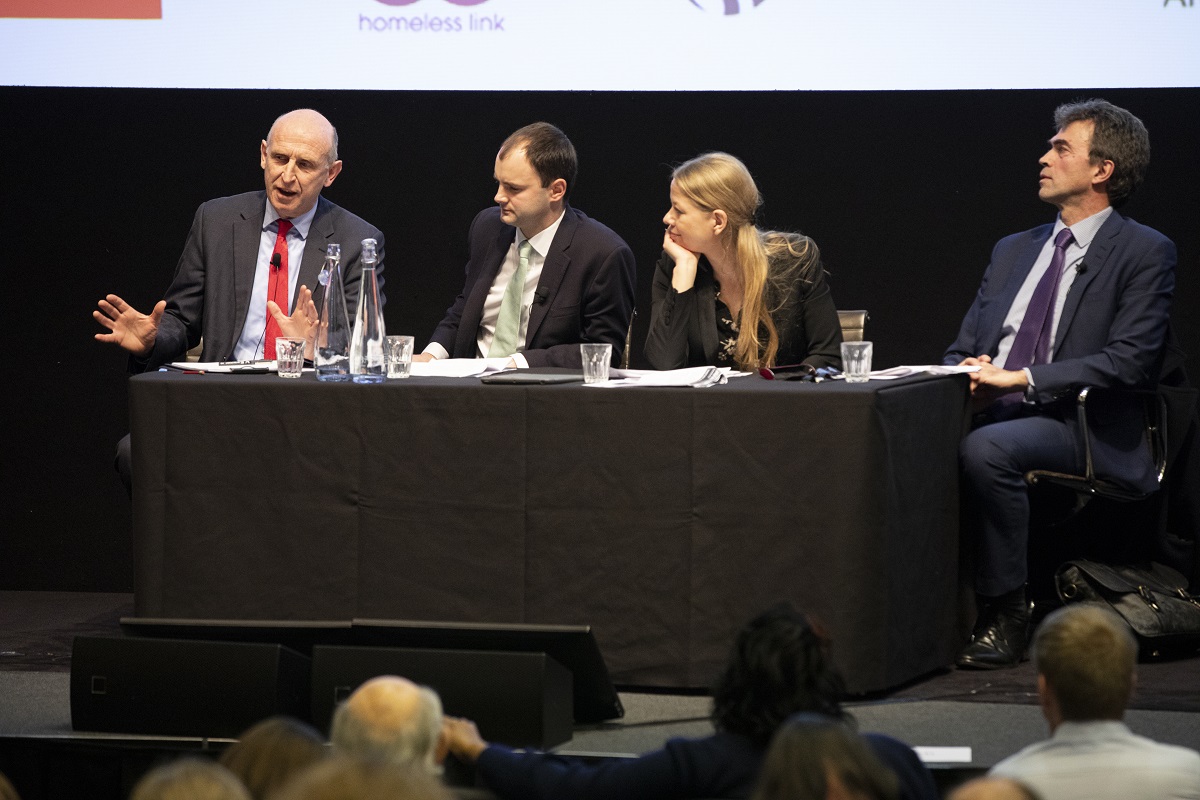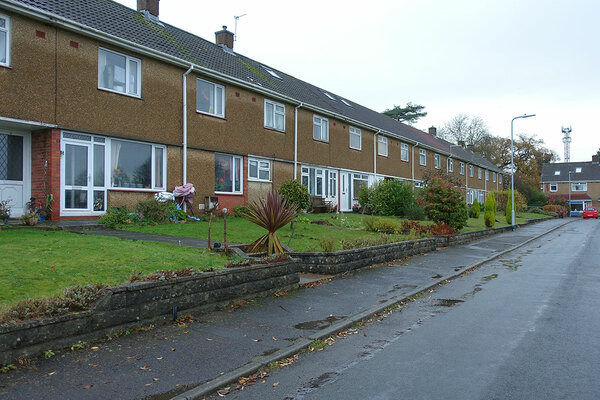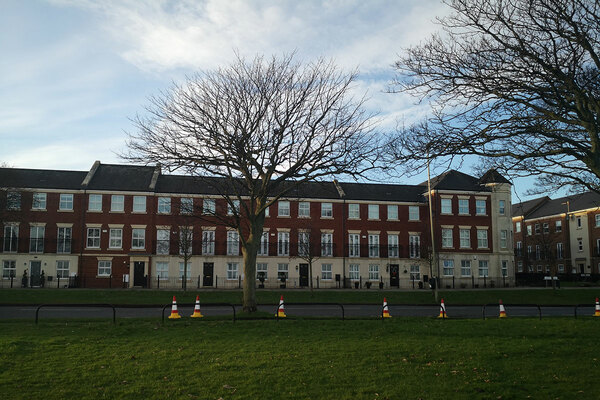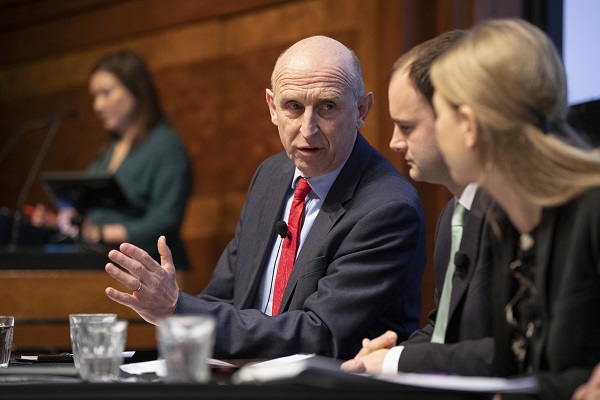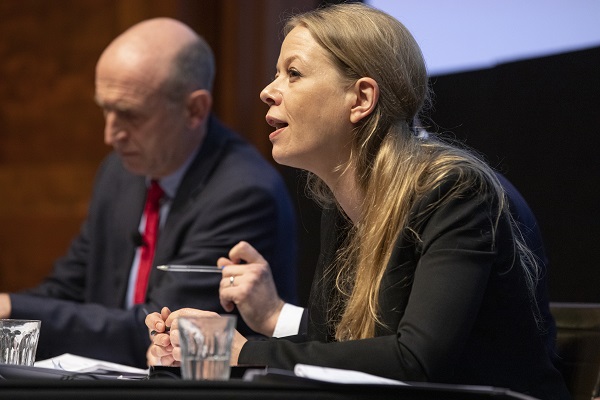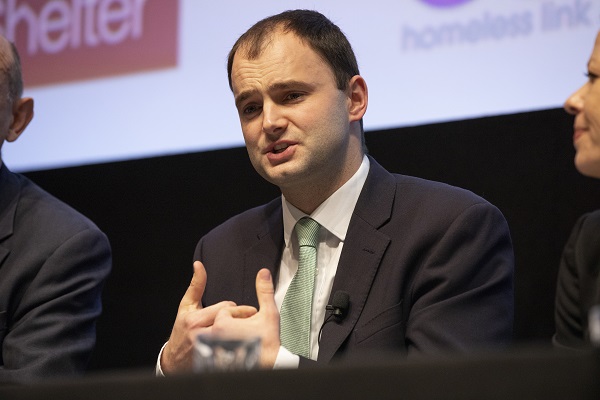Five things we learned from the Housing Hustings
Wednesday night saw spokespeople from across the country’s major parties brought to the Royal Institute of British Architecture’s headquarters to take part in a housing hustings. Inside Housing’s Nathaniel Barker was there to note down what we learned
On Wednesday night, a consortium of housing and homelessness organisations held a National Housing Hustings in central London that was chaired by political commentator Ayesha Hazarika MBE.
Spokespeople from the Conservatives, Labour, the Liberal Democrats and the Greens attended to set out their vision for housing.
Inside Housing was among those in the audience and has rounded up the key takeaways from the 90-minute debate.
The Conservatives know housing is their weak point
Both housing secretary Robert Jenrick and housing minister Esther McVey were notably absent from the hustings. Representing the Conservatives instead was Luke Hall, who was elected MP for Thornbury and Yate in 2015 and became a junior minister at the Ministry of Housing, Communities and Local Government in July.
His very presence, as a considerably less senior party figure than those sitting next to him, therefore felt like a tacit admission that this would not be an easy win for the Tories. For most of the debate, he adopted a policy of staying out of trouble, preferring to stick to promises such as “investing in infrastructure” and “devolving more powers to the regions”. A wise policy, probably, particularly as the Conservatives are clearly most easy to scrutinise, having been in government for nearly a decade.
Aside from one or two slightly rocky moments, such as struggling to explain exactly how the Conservatives would deliver on their pledge to eliminate rough sleeping quicker than previously planned, things were going fairly smoothly for Mr Hall until the final question.
The panel was asked how much of one’s income it is reasonable to spend on housing. Mr Hall, answering first, elicited tangible disquiet with his answer of 50%. Ms Hazarika had to ask for calm, reminding the audience: “This isn’t Question Time.”
All the other parties’ spokespeople said either a third or 30%.
It was certainly a telling moment. For a more thorough analysis, read Inside Housing columnist Jules Birch’s lastest piece.
On housing, Labour is the party to beat
Picture: Kate Stanworth
Labour sent along shadow housing secretary John Healey, MP for Wentworth and Dearne since 1997 and someone likely well known to readers. The debate was meat and drink for Mr Healey, who has held the housing brief for 10 years.
His body language was certainly confident and he often leaned forward from the edge of his chair. Not only does he know the topic, he was clearly sure that Labour’s housing policies would play well with the room.
People who have heard Mr Healey speak before will have heard many of his lines already, but some are undeniably solid hitters: if the coalition government had maintained social rent development at the same level as when Labour left government in 2010, there would be enough new homes for every household in temporary accommodation or sleeping rough today.
However, it could perhaps be argued that he slightly fudged his response to North Star chief exec Angela Lockwood’s question about how the parties would help ‘left behind’ communities where the housing market has failed, veering off into a more general answer about regeneration.
Mr Healey was not afraid to take a combative approach at times – going after both Mr Hall and Lib Dem panellist Tom Brake more than once. That Mr Brake and Green spokesperson Sian Berry targeted Labour more often than they did the Conservatives demonstrated that Mr Healey was the one to beat here.
The Greens want to be seen as driving Labour’s housing policy
Picture: Kate Stanworth
Sian Berry, co-leader of the Green Party and a London Assembly member, also showed herself to be very able on housing issues – as she has before in similar events.
She came up with the most memorable quote of the evening when answering a question on homelessness: “Homeless people are not the weather. They don’t need sweeping up like broken leaves. We need to fix the tree and stop people falling off it in the first place.”
That preluded her insistence that the Greens’ call for a universal basic income (UBI) would be a “guarantee against poverty” capable of fixing the metaphorical tree.
With the luxury of being able to pledge as much money as she likes – enough to make even Labour look like stingy bean counters in cases such as zero-carbon retrofitting – Ms Berry was keen to push more radical measures such as the UBI, as she pitched herself as the real candidate for eliminating poverty. Speaking plainly and passionately, she made a good play at reflecting the audience’s obvious enthusiasm for housing.
She was eager to show she has driven London mayor Sadiq Khan’s housing policy – claiming victory over City Hall’s requirement for resident ballots in estate regenerations and the shift in favour of rent caps, for which she and her colleagues had previously been calling.
Her core argument, summed up later on, was that “only Green MPs in parliament” would effectively hold any government to account over delivering the huge changes needed to solve the housing crisis in all its forms.
The Lib Dems consider themselves the credible alternative
Picture: Kate Stanworth
Tom Brake was the Liberal Democrats’ offering for the debate. A long-serving south-west London MP who has previously held fairly senior positions in the party, he pitched himself quite clearly as offering a more “deliverable” and “credible” version of Mr Healey’s menu. These were his watchwords, which he repeated several times through the debate.
Mr Brake’s answers were cautious and measured. While backing tough zero-carbon targets, he expressed a need to be “careful” about retrofitting insulation, to avoid repeating the mistakes of the past. For those sceptical about the plausibility of some of Labour’s big promises, this approach may have appealed.
He did clash with Mr Healey, when attacked for the Liberal Democrats’ record on welfare cuts as part of the coalition government, hitting back that homelessness reached its peak under a Labour government in 2003. But true to form, he later praised his Labour opponent for the Single Regeneration Budget – something of a housing policy throwback.
Housing is not a key election issue
Picture: Kate Stanworth
One of the most illuminating things about the Housing Hustings was who was absent – the Conservatives only felt compelled to send in a rather nervous-looking junior minister, while the Liberal Democrats did not send their housing spokesperson, former leader Tim Farron. This seemed to indicate that neither party sees housing as a key vote-winner.
Ms Berry, in her concluding comments, noted that housing “has not received enough attention” during the election campaign. Surely testament to that is the lack of scrutiny of the Conservatives’ mathematically impossible promise to build a million new homes over five years and increase housebuilding to 300,000 homes annually.
There were moments of welcome consensus – most notably that current Local Housing Allowance rates aren’t high enough. But it was worrying that the party most likely to be in government come Christmas according to the polls doesn’t seem to have housing high on its priority list.
